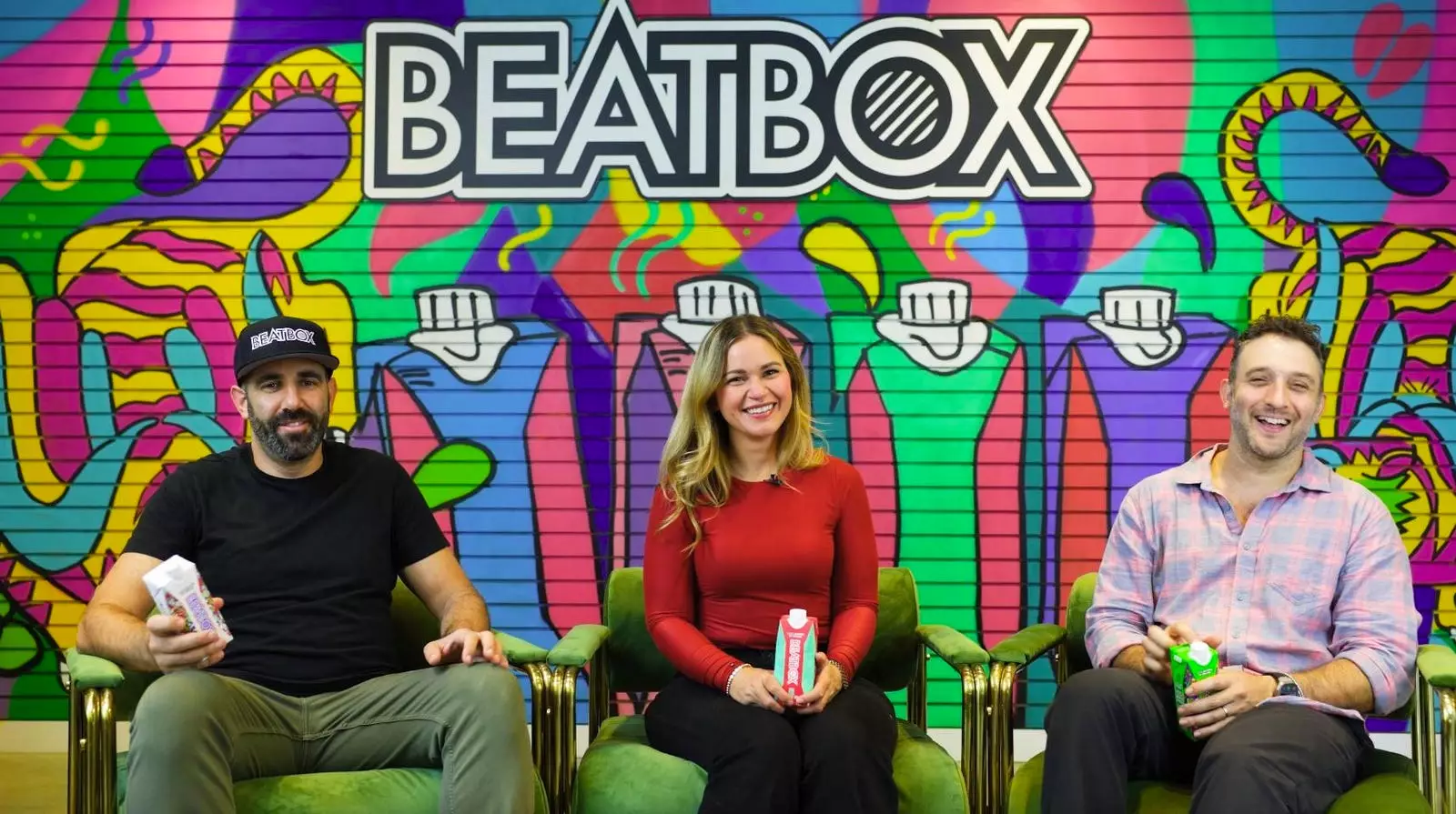In 2014, when three ambitious entrepreneurs pitched their product on the iconic show “Shark Tank,” they unknowingly set the stage for a modern-day beverage revolution. Justin Fenchel, Aimy Steadman, and Brad Schultz, all MBA students at the University of Texas at Austin, identified a glaring gap in the alcohol market—particularly for the party-going demographic. Dissatisfied with the limited options available, dominated by traditional beer and boxed wines, they envisioned a new genre of ready-to-drink cocktails packaged in vibrant, stereo-shaped bags. Their concept was more than just a drink; it was a lifestyle centered around youth culture and music, resonating with their passion for music festivals. Little did they know, their vision would eventually take the beverage industry by storm.
Mark Cuban’s $1 million investment in BeatBox Beverages marked a pivotal moment. It wasn’t just a financial commitment; it was an endorsement of a unique product that blended fun flavors with convenience and cultural relevance. Fast-forward to today, and BeatBox stands as a formidable player in the $200 million beverage market. With $100 million in sales last year alone, their trajectory appears unstoppable, and ambitions to double these figures in 2024 underline the brand’s explosive growth.
The initial genesis of BeatBox Beverages took place in a modest 800-square-foot facility in Austin, Texas, where the founding trio wore many hats, juggling production and distribution. Early on, they encountered a significant hurdle: their price point was perceived as high, and the bulk packaging wasn’t appealing to casual consumers seeking single-serve convenience. In response to these challenges, BeatBox made a strategic pivot in 2017 by introducing single-serve options using Tetra Pak technology. This bold move allowed them to cater to the preferences of a wider audience, creating a more accessible product.
Moreover, transitioning from a wine-and-spirits distribution model to partnering with beer distributors proved transformative. This shift not only aligned BeatBox with a distribution network capable of delivering their products to convenience stores—where their colorful, trendy packaging could resonate with impulse buyers—but it also improved their profit margins. As Zech Francis, BeatBox’s VP of global marketing, noted, their sales skyrocketed, achieving more in the first quarter of 2018 than the entire previous year, underscoring the effectiveness of this strategic move.
BeatBox Beverages is part of a broader trend in the alcohol industry often referred to as “the fourth alcohol wave,” characterized by innovation and a departure from traditional offerings. The rise of ready-to-drink cocktails (RTDs) and flavored malt seltzers has transformed how consumers enjoy alcoholic beverages. Brands like White Claw and Truly have forged new pathways, and in this competitive landscape, BeatBox distinguishes itself by targeting a younger audience with its vibrant branding and unique flavor profiles.
According to beverage consultant Taylor Foxman, BeatBox’s growth trajectory can be attributed to the company’s unwavering focus on disruption. The commitment to innovation—reflected not only in product formulation but also in strategic marketing—has placed the brand at the forefront of an evolving market. Recent partnerships, including the engagement of sports icon Shaquille O’Neal as an investor, illustrate BeatBox’s effort to leverage celebrity influence to effectively engage its target demographic.
BeatBox is now present in over 107,000 retail locations across all 50 states, making notable progress towards gaining a significant foothold in the rapidly growing RTD category. Recent data indicates that BeatBox accounts for approximately 22% of the sector’s growth—a testimony to their strategic vision. Yet with a household penetration of just 3.9%, there remains a vast market opportunity to exploit.
The brand has ambitious plans for the upcoming years, including the integration of new members to their advisory board, such as former New Belgium CEO Christine Perich, and Celsius executive Toby David, who brings invaluable operational experience. Their strategies include not only diversifying flavor offerings—exemplified by the newly launched Orange Blast and the upcoming Cherry Limeade—but also penetrating mainstream retail giants such as Walmart and Target.
The engagement of a strategic partner, potentially a family office, signifies BeatBox’s desire to bolster its operations and further escalate growth. As Fenchel noted, while they’ve experienced strong profitability, they are just beginning to tap into the potential of larger retail markets.
In just under a decade, BeatBox Beverages has not only disrupted the traditional alcohol industry but has crafted a brand that resonates deeply with its consumer base. As they continue to innovate, expand, and refine their product offerings, the future looks extraordinarily promising—not just for BeatBox but for the broader landscape of ready-to-drink cocktails. With a strategy rooted in understanding consumer desires and a commitment to delivering fun, flavorful experiences, BeatBox is well-positioned to maintain its upward trajectory in the years to come.


Leave a Reply